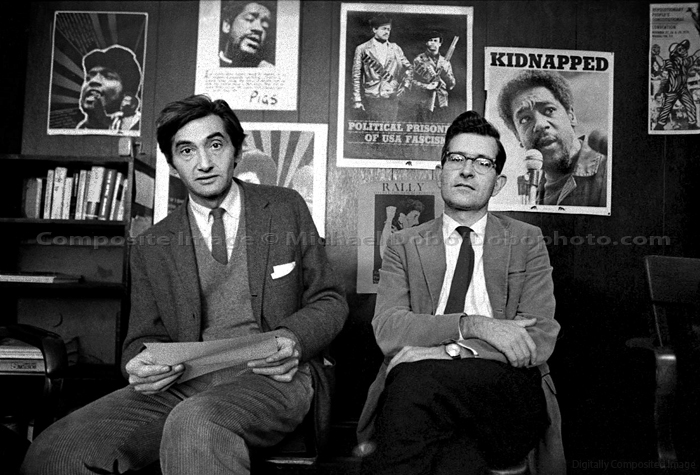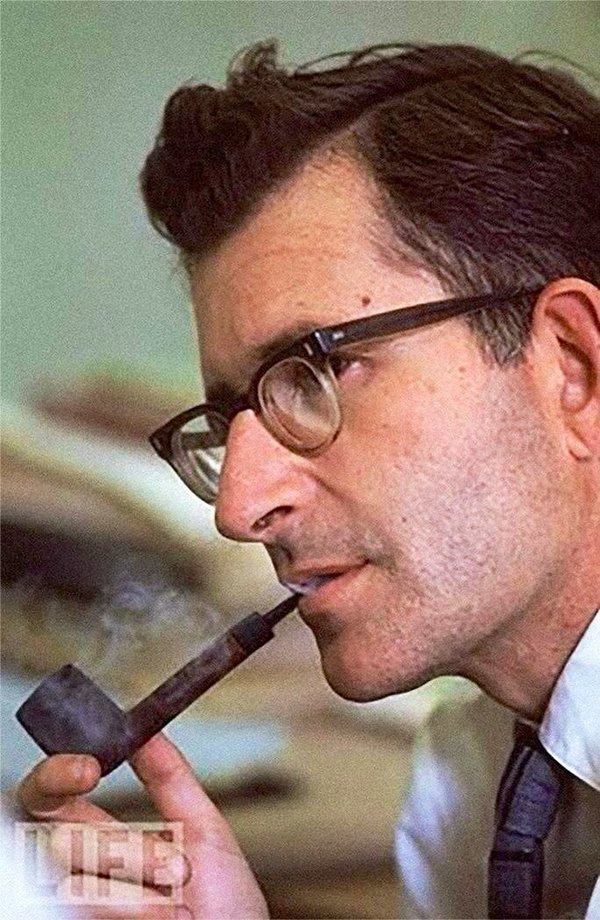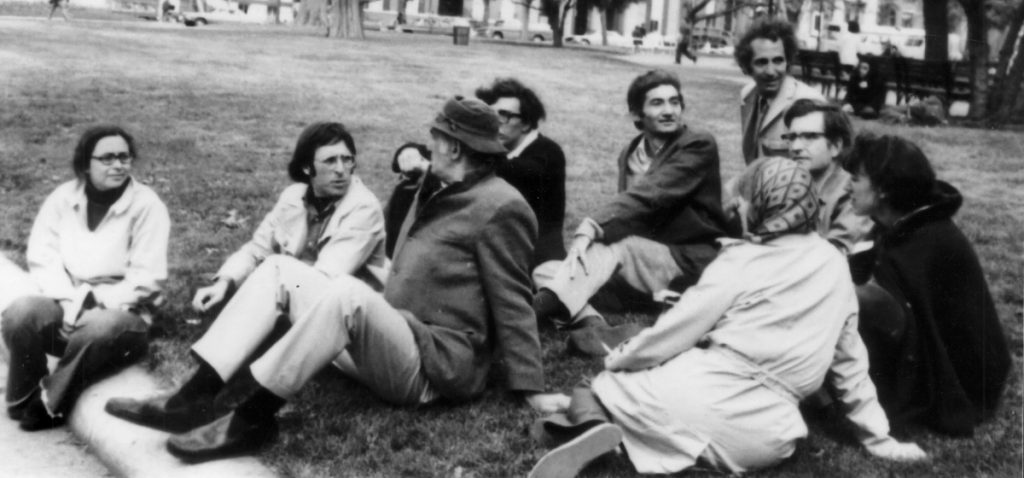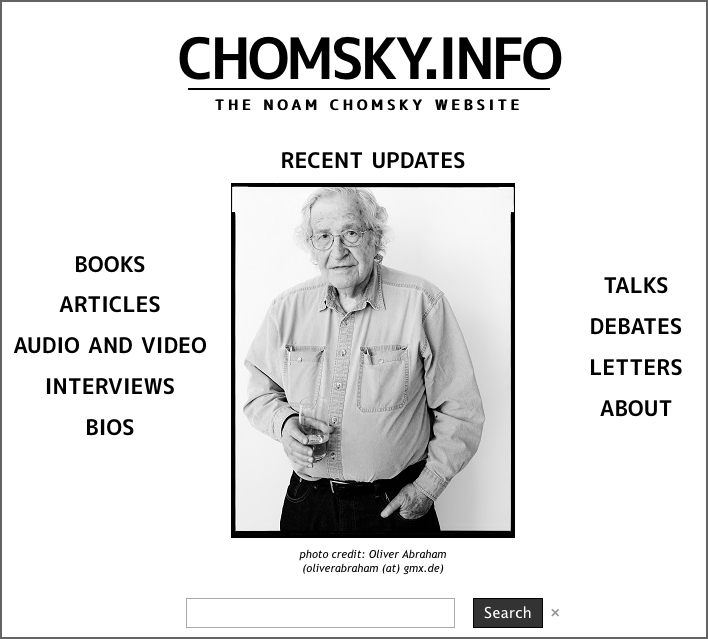
December 7 is the birthday of Howard Zinn’s longtime friend Noam Chomsky. In celebration, we share this interview with David Barsamian (DB) of Alternative Radio about how they met. Excerpted from The Future of History, Zinn discusses Chomsky’s popularity, “His message has been so powerful and so outrageously true and so backed up by information and so very often ahead of everybody else.”
___________________________

I first met Noam, I had moved not long before to Boston from the South. It was the summer of 1965. I had vaguely heard of him from somebody who talked about him as a linguist. I knew there was a guy named Chomsky at MIT and that he was brilliant in the field of linguistics. That’s all I knew about him. I didn’t know that he had any interest in politics. This is a funny thing to say. If somebody said today about Noam Chomsky, Oh, I didn’t know that he was interested in politics, well! And then, something was happening. I moved out of the South but I was still in touch with things in the region. A lot of people were being arrested in Jackson, Mississippi, Black people, SNCC people, and being held in the big compound because there were too many of them to fit into the jails. It was decided to send a delegation of people from the Boston area down to take a look at things and make a report. Bob Zellner, one of the original SNCC people, one of the few white people in SNCC, a white Southerner from Alabama, a fantastic person, organized this and asked me to come. I said OK. I found myself on a plane going south sitting next to a guy who introduced himself as Noam Chomsky. A very immodest statement, don’t you think, for him to say, I’m Noam Chomsky? So we talked all the way down. Then we talked while we were there and we talked on the way back. We became friends. I became aware of the fact that he was a guy who wasn’t just interested in linguistics—although he had a slight interest in linguistics—but he was very, very deeply concerned about what was going on in the country and the world and it occurred to me, talking to him, that he was very smart. So from then on, and then, of course, with the Vietnam War escalating just about that time, the two of us found ourselves on the same platform again and again at the same rallies. So we got to know one another.
DB: You’ve said that you were often the opening act for Chomsky.
Like rock and roll groups. I was the warm-up. I had a lot of emotional statements surrounding several facts. Noam would come on with one vaguely emotional statement and 7,000 facts. It seemed to me a good combination.

DB: As you know, he’s not a flamboyant, charismatic speaker. He would be the first to acknowledge that. What accounts for the enormous crowds that he attracts, not just in the U.S. but all around the world?
You say, not just in the U.S. He attracts bigger crowds in Canada and in Europe, and now lately in Latin America. I just talked to him today. He just returned from Latin America. Everywhere he goes there are huge crowds. Everywhere I go to speak, five hundred people show up. They inform me quietly, Noam Chomsky was here two weeks ago. Two thousand people came to hear him. Is this a message they’re trying to give me? I’m inadequate? The reason so many people turn out to hear him is one, they’ve heard about him. I guess he’s famous. It’s interesting that he should be famous, because all the organs of power in the U.S. are trying their best not to make him famous, to shut him up, not to publish him, not to pay attention to him, not to put him on national radio or TV. But his message has been so powerful and so outrageously true and so backed up by information and so very often ahead of everybody else. Look, he was the first one in this country to talk about East Timor. Now the East Timor rebels get the Nobel Prize. As I go around the country, wherever I go Noam has already spoken or is about to speak there. Plus, he speaks at a lot of places where I don’t speak. I have run into so many people all over who say that they went to hear him speak and it had an amazing effect on them, as you say, without him being flamboyant. Just the power of what he says, the information that piles up, so devastating and so obviously true, and with such documentation. It amounts to a powerful indictment of our society, of our economic system, of our political system, of the hypocrisy, of the failure of the press to report what is going on in the world. To me it’s a very encouraging thing that wherever Noam speaks huge crowds turn out. It shows me that there is an enormous population in this country that is hungry for information that they don’t get in the major media.
More on Chomsky
 Visit Chomsky’s website, chomsky.info, and Facebook page for events, news, and video clips.
Visit Chomsky’s website, chomsky.info, and Facebook page for events, news, and video clips.
Thanks to Michael Dobo for generously allowing us to use his image of Zinn and Chomsky.



